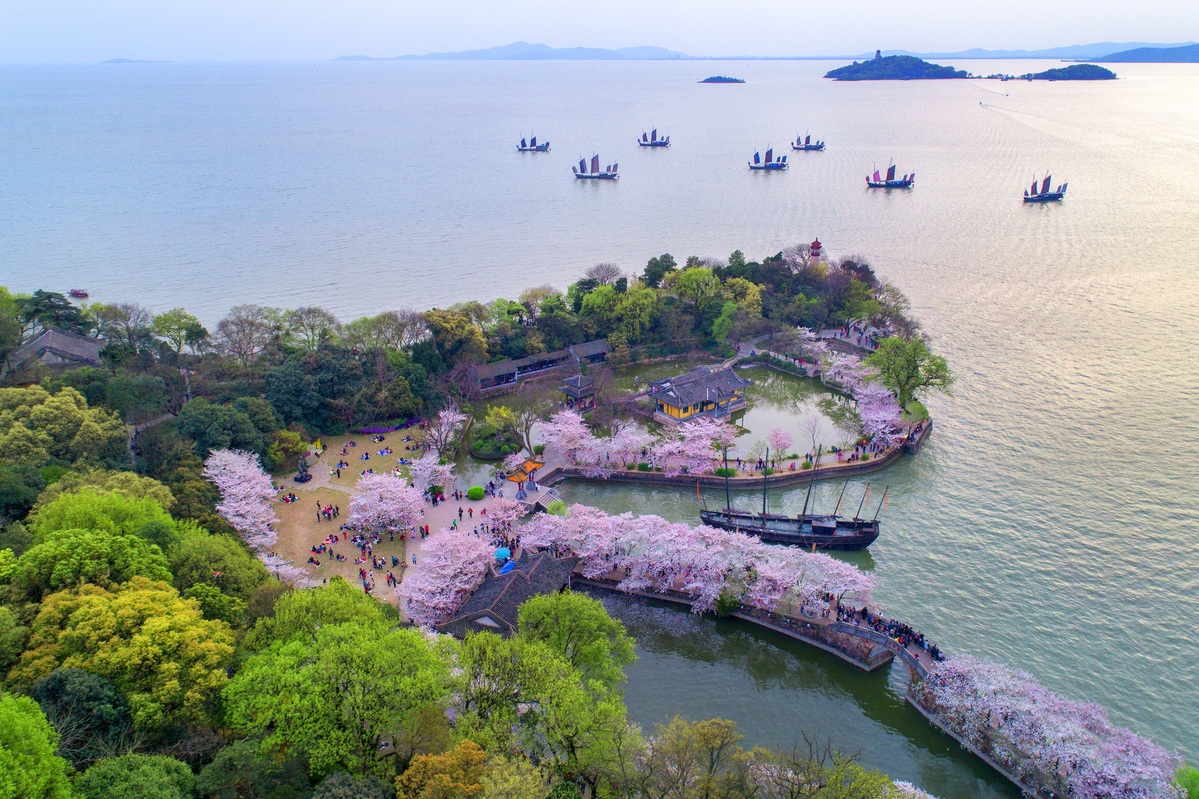
An aerial photo shows the Yuantouzhu Scenic Area on Taihu Lake in Wuxi, Jiangsu province. [Photo provided to chinadaily.com.cn]
NANJING -- Taihu, China's third-largest freshwater lake located in the country's manufacturing heartland, has seen its water quality improve to its best level in 30 years, local authorities said Sunday.
The lake is located in the Yangtze River Delta region, one of China's most industrialized and densely populated areas, and was once infamous for its algae outbreaks caused by pollution.
In 2024, for the first time in three decades, the average water quality of the lake reached Grade III on the country's five-tier water quality system, meaning it was classed as "fairly good," according to the Department of Ecology and Environment of Jiangsu Province, where much of the lake is located.
During the summer of last year, the lake saw the average area and algae density of its blue-green algae bloom drop year on year by 15.8 percent and 17.5 percent, respectively, the department said.
"What we're seeing is an extraordinary feat of eutrophication control in a large lake," said Zhu Guangwei, a researcher with the Nanjing Institute of Geography and Limnology, Chinese Academy of Sciences.
Zhu said treating eutrophication in large, shallow freshwater lakes is a global challenge, especially in economically vibrant areas, so Taihu's success can provide important insights for the world.
Taihu, an important water source for 17 million residents in East China, has a history of pollution, most notably since the 1990s, due to rapid industrialization and urbanization in the region.
Since 2007, Jiangsu has pressed phosphorus-related enterprises near the lake to reduce discharge, and promoted wastewater collection and treatment, among a package of pollution control measures. The area around the lake has also undergone a transition toward high-tech and less-polluting industries.